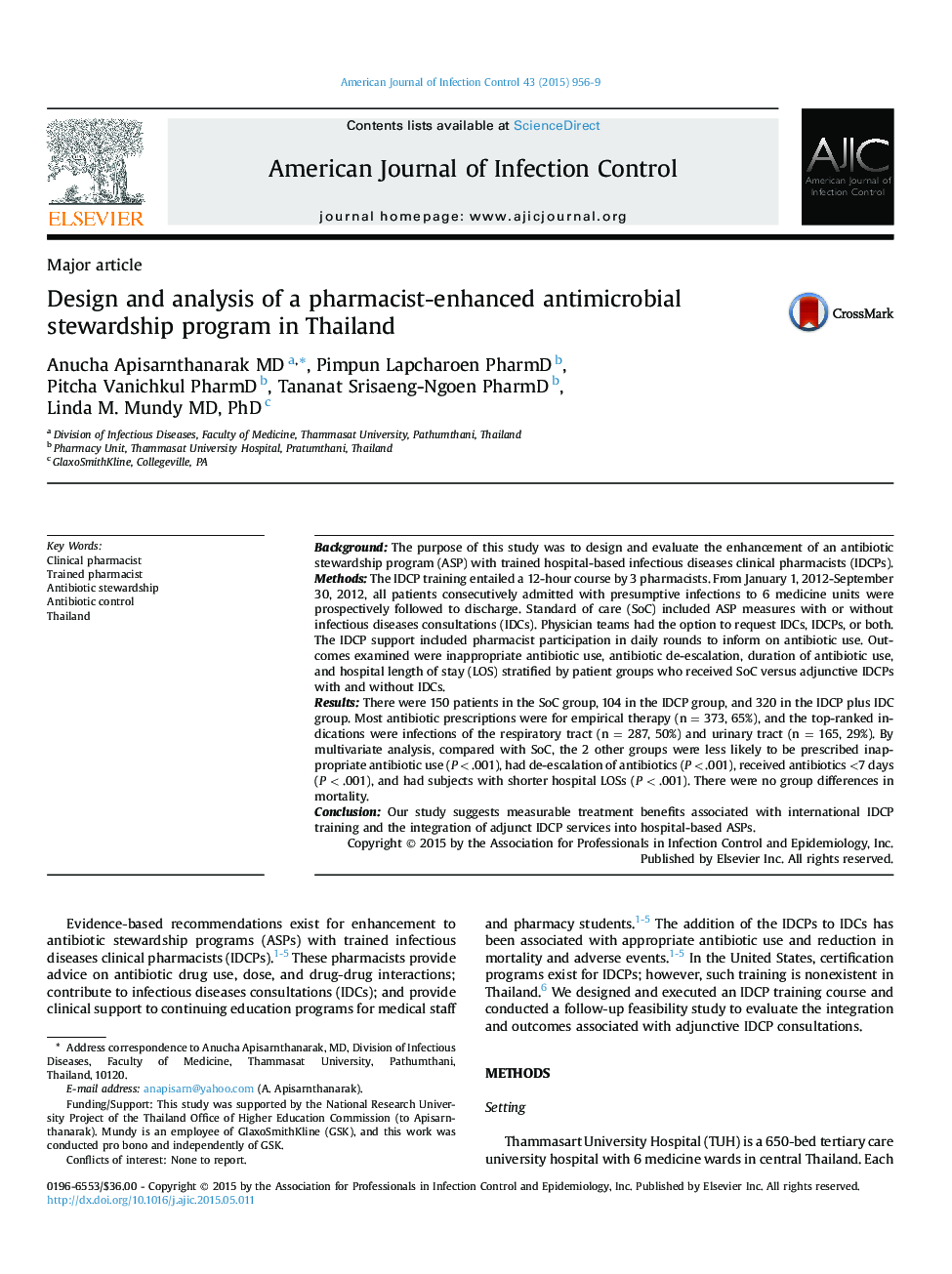| کد مقاله | کد نشریه | سال انتشار | مقاله انگلیسی | نسخه تمام متن |
|---|---|---|---|---|
| 2636721 | 1563468 | 2015 | 4 صفحه PDF | دانلود رایگان |
• Infectious diseases clinical pharmacists can be integrated into antibiotic stewardship programs in resource-limited settings.
• Establishment of an infectious diseases clinical pharmacist program can improve antibiotic prescribing practices in resource-limited settings.
• Integration of adjunct infectious diseases clinical pharmacist services into hospital-based antibiotic stewardship programs deserves further investigation.
BackgroundThe purpose of this study was to design and evaluate the enhancement of an antibiotic stewardship program (ASP) with trained hospital-based infectious diseases clinical pharmacists (IDCPs).MethodsThe IDCP training entailed a 12-hour course by 3 pharmacists. From January 1, 2012-September 30, 2012, all patients consecutively admitted with presumptive infections to 6 medicine units were prospectively followed to discharge. Standard of care (SoC) included ASP measures with or without infectious diseases consultations (IDCs). Physician teams had the option to request IDCs, IDCPs, or both. The IDCP support included pharmacist participation in daily rounds to inform on antibiotic use. Outcomes examined were inappropriate antibiotic use, antibiotic de-escalation, duration of antibiotic use, and hospital length of stay (LOS) stratified by patient groups who received SoC versus adjunctive IDCPs with and without IDCs.ResultsThere were 150 patients in the SoC group, 104 in the IDCP group, and 320 in the IDCP plus IDC group. Most antibiotic prescriptions were for empirical therapy (n = 373, 65%), and the top-ranked indications were infections of the respiratory tract (n = 287, 50%) and urinary tract (n = 165, 29%). By multivariate analysis, compared with SoC, the 2 other groups were less likely to be prescribed inappropriate antibiotic use (P < .001), had de-escalation of antibiotics (P < .001), received antibiotics <7 days (P < .001), and had subjects with shorter hospital LOSs (P < .001). There were no group differences in mortality.ConclusionOur study suggests measurable treatment benefits associated with international IDCP training and the integration of adjunct IDCP services into hospital-based ASPs.
Journal: American Journal of Infection Control - Volume 43, Issue 9, 1 September 2015, Pages 956–959
